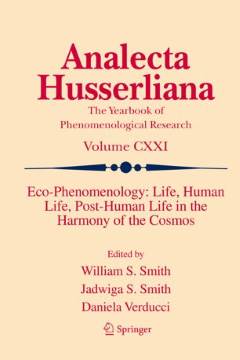Repository | Book | Chapter

(2018) Eco-Phenomenology, Dordrecht, Springer.
Heidegger's concept of language as a house of being (Wohnung) and the construction of a house that is privacy open to the world (Lévinas) refer us back to the origin of consciousness. A person's realization that he or she is "of" something, opens the self to a native place that displays still unknown possibilities. The current concern about ecology also refers to the vital relationship involving the Logos of life at the point of the space-time intersection of human movement – that of the body – in one's living space. This point is germination, a germ, and establishes a mode of existential presence in the world: a qualified voice. These relationships occur prior to the fact of our knowing them. They precede us. They are the a priori of consciousness, but are registered in the Logos. To them belongs language, which allows us to enter them, analyze them, determine them, and discover the native, original locus of consciousness. Language announces the open state of matter (apeiron), the uncertainty of which is determined by building precisely the intimate home of the primary relationship of life, one's habitat. The current concern for Ecology renews the question of the fate of Man, who is none other than the creator of sense for existence. When we stop creating, we break the latent rhythm of the cosmos and the corresponding radiation of existence. Man amazes himself.
Publication details
DOI: 10.1007/978-3-319-77516-6_31
Full citation:
Domínguez Rey, A. (2018)., The language that (in)habits us, in W. S. Smith, J. Smith & D. Verducci (eds.), Eco-Phenomenology, Dordrecht, Springer, pp. 387-404.
This document is unfortunately not available for download at the moment.



